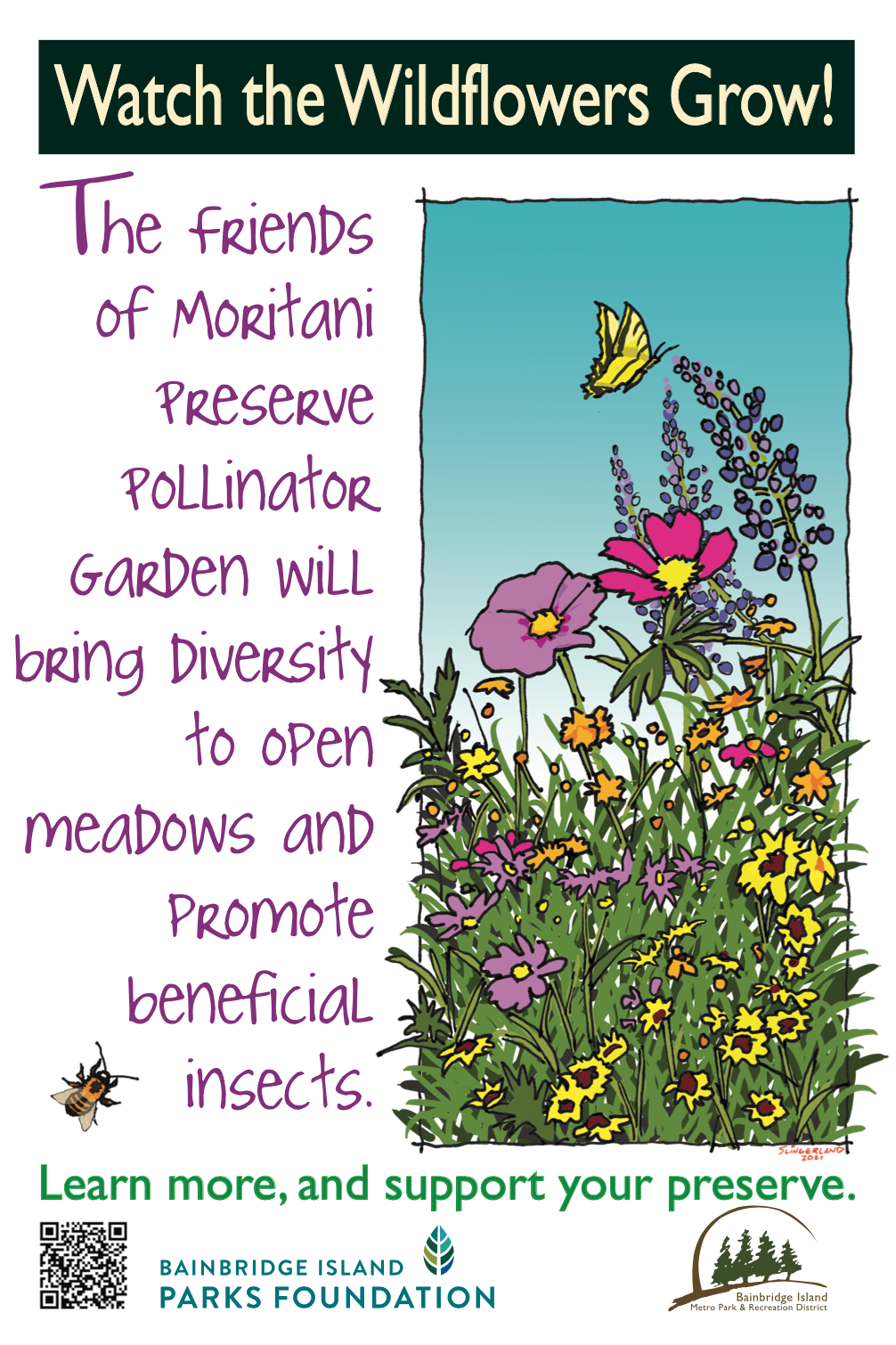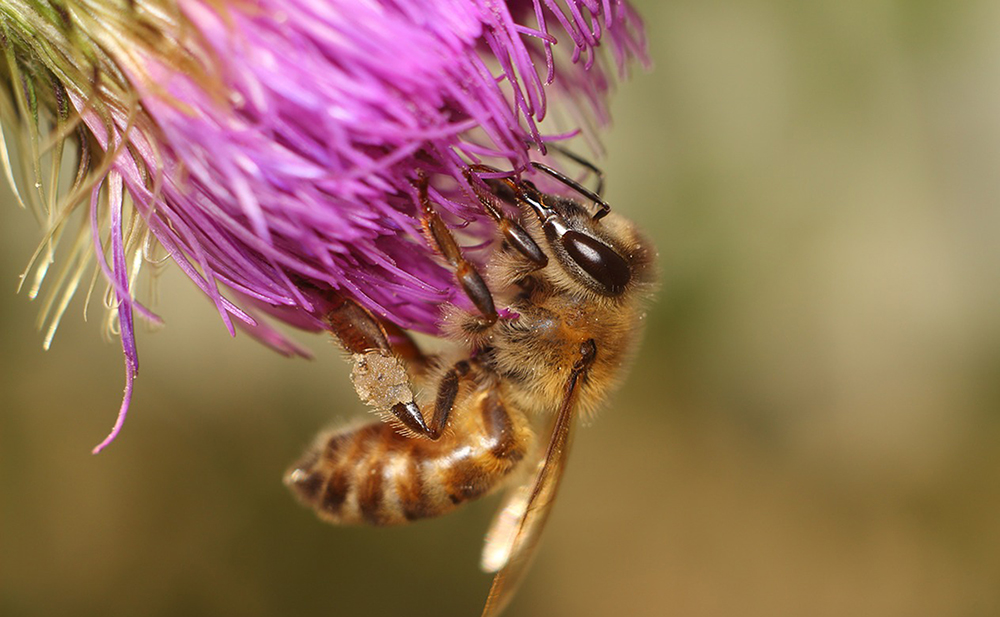Good for the butterflies, good for the bees.
A pollinator garden is coming to Moritani Preserve this spring, bringing bright flowers attractive to the busy bees (and butterflies, bats and some birds, even) that propagate plants by spreading pollen across the countryside as they feed on flower nectar.
Visitors will see several days of work near Moritani’s north trail entrance, where a contractor will remove field grass roots and replace with planting soil. The area will be seeded with flower varieties including lupine, coneflower, blanketflower and wallflower.
The pollinator garden will look like bare earth as the flowers fill in, and will be signed asking visitors to stay clear. More pollinator gardens may be added around the Moritani meadows in the future.
The pollinators project is a partnership of the Bainbridge Island Parks Foundation, Bainbridge Metro Parks, and the Friends of Moritani Preserve.
Why pollinators? Says the National Park Service:
Because we like to eat. Fruits, vegetables, seeds – one out of every three bites of food you enjoy is on the plate because of the efforts of little pollinators. They’re not only necessary for our own food, but support the food and habitat of other animals in the chain.
Because we like clean air. Healthy ecosystems depend on pollinators. At least 75 percent of all the flowering plants on earth are pollinated by bees, butterflies, birds and other animals – more than 1,200 different food crops and 180,000 types of plants. These plants in turn help stabilize soils, keep the air clean, supply oxygen and support wildlife.
Because we like a healthy economy. In the United States alone, pollination by honey bees contributed to over $20 billion of crop production in 2019, while pollination by other insects contributed billions more in crop production. One honey bee colony alone is worth 100 times as much to the community as to the beekeeper. On a global scale, pollinators’ impact is magnitudes greater still. (Sources: www.nps.gov, www.forbes.com).




